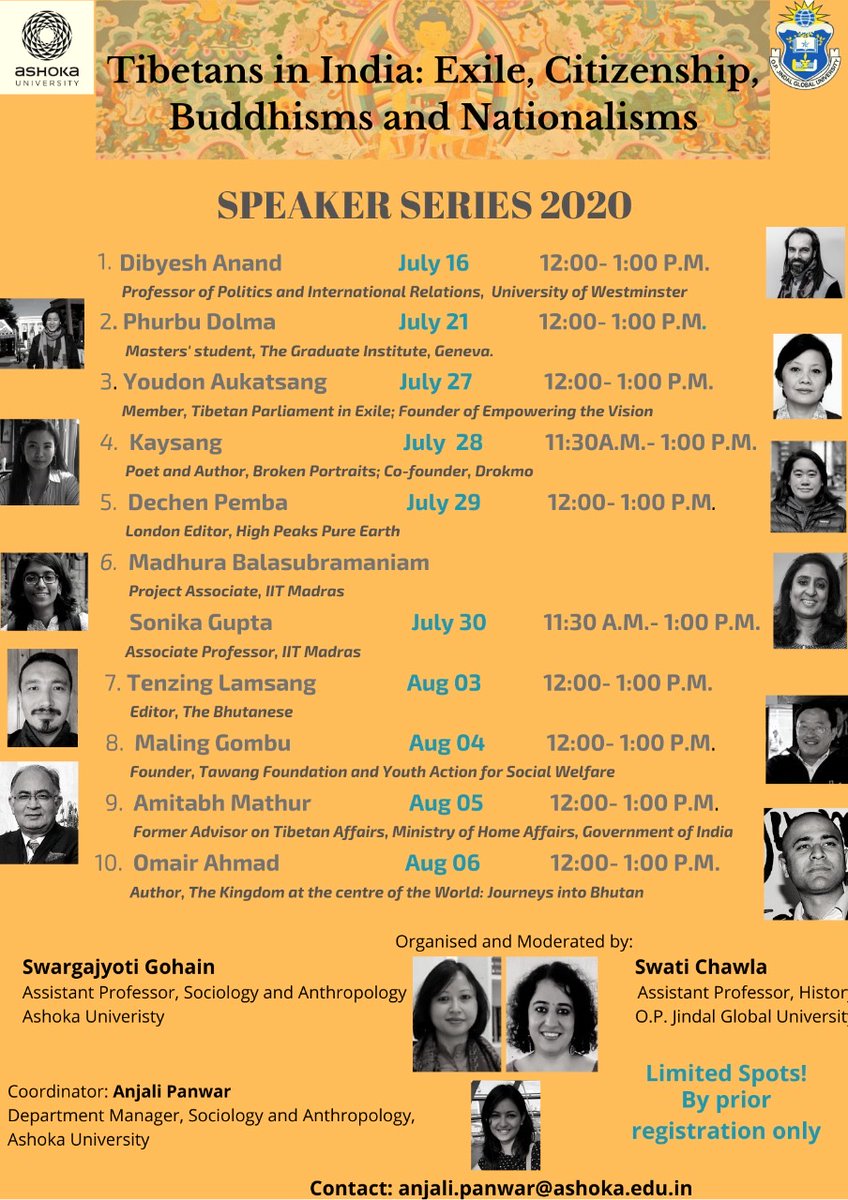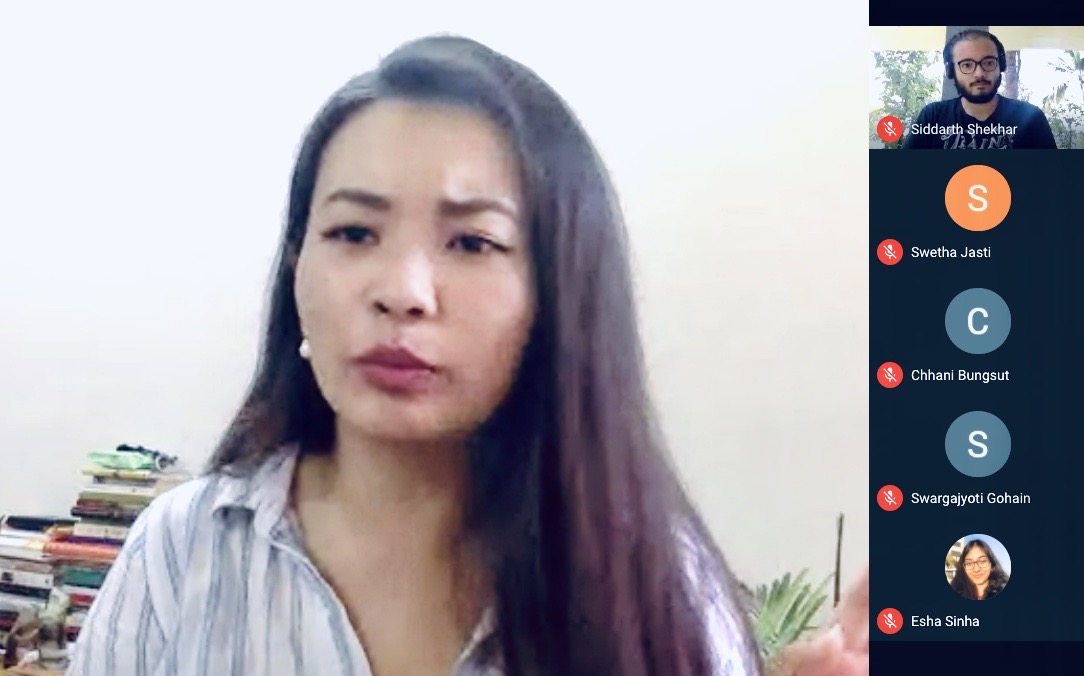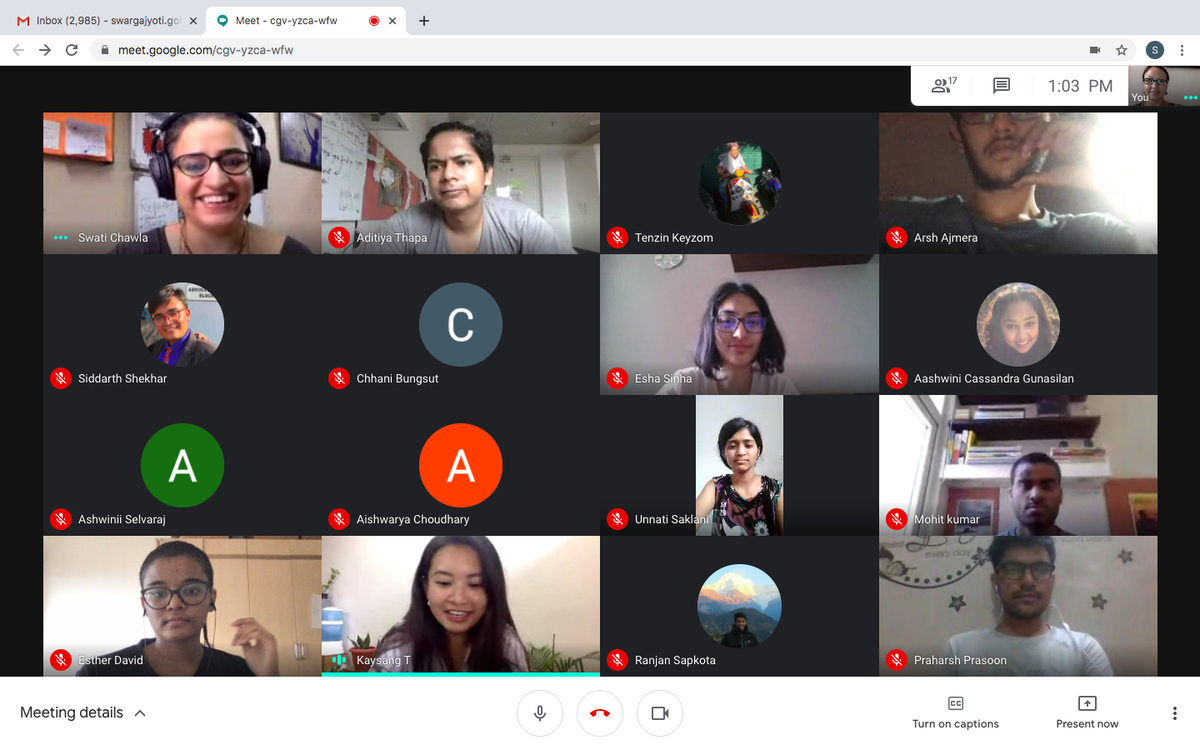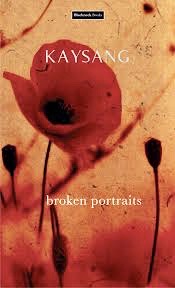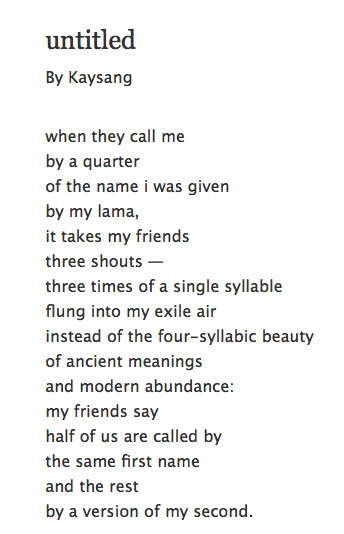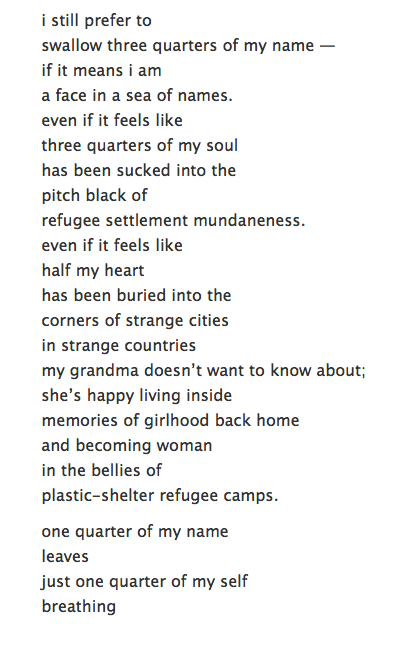Thread on fourth talk in our Speaker Series:
1/ Kaysang, poet+ co-founder of Drokmo, spoke w/ inspiring courage+ candor on being a feminist, an activist, a difficult to box individual, and a female poet in exile.
(Follow her work on @instagram: kay.sang+ http://drokmo.in ) https://twitter.com/ChawlaSwati/status/1287759733273722887
1/ Kaysang, poet+ co-founder of Drokmo, spoke w/ inspiring courage+ candor on being a feminist, an activist, a difficult to box individual, and a female poet in exile.
(Follow her work on @instagram: kay.sang+ http://drokmo.in ) https://twitter.com/ChawlaSwati/status/1287759733273722887
2/ She spoke of "reconciling" complex legacies in and through her poetry— patrilineal and matrilineal; Tibet and India; home and exile; brave vulnerability+ openness and obstinate shutting down; simultaneously "Gesar's daughter" +"Lukar's mongrel" (ཀླུ་མཁར་ གྱི་ ཨབ་ ཕྲུག་).
3/ Kaysang: "Poetry allows me to tell certain aspects of my story. I don't have to go all out… Broken (in title ) doesn't signify that it was whole before. The poems present fragmented aspects of life that I've lived. The poppy flower signifies death+ resurrection (i.e. hope)."
) doesn't signify that it was whole before. The poems present fragmented aspects of life that I've lived. The poppy flower signifies death+ resurrection (i.e. hope)."
 ) doesn't signify that it was whole before. The poems present fragmented aspects of life that I've lived. The poppy flower signifies death+ resurrection (i.e. hope)."
) doesn't signify that it was whole before. The poems present fragmented aspects of life that I've lived. The poppy flower signifies death+ resurrection (i.e. hope)."
4/ Kaysang called out the unequal burden on non-English poets: "I'm tired of ppl coming into our communities+ us having to explain everything to them +them feeling they're entitled to us. This (Tibetan references w/o explanations) was an attempt to rebalance the power dynamic."
5/ On being #Tibetan in India: She was known in her #Delhi college "by a quarter/ of the name i was given/ by my lama"
(Kay for Tenzing Kalsang): "it was convenient for them to forget about these parts about me… as if they wanted to avoid the politics behind my name."
Poem
(Kay for Tenzing Kalsang): "it was convenient for them to forget about these parts about me… as if they wanted to avoid the politics behind my name."
Poem

6/ On political activism: started at 10 w/ @SFT_India meetings; later joined #GuChuSum mvmt (Prez Lukar Jam). She spoke abt making personal (live by herself, chart her own path)+ political choices (standing for #Rangzen) unpopular w/ her family (support @DalaiLama's #MiddleWay).
7/ On "manufactured nostalgia": "What does going back even mean when my parents and I were born in India? I have no doubt about wanting to free #Tibet from Chinese occupation, but the nostalgia for a place that you or your parents have not been to, what does it even mean?"
8/ On "political" v/s "personal" poetry: w/ characteristic candor, Kaysang spoke of how experience of growing up in exile settlements+ always being expected to write about #FreeTibet+ wanting to return stifled creative expression: "after a point of time, it is v. dehumanizing."
9/ Kaysang: "You living+ experiencing your life in its fullness+ forming your own ideas abt justice, abt your communities+ family, +experiencing being human in its fullness is in itself a political statement. Why do we have to say #DalaiLama, lam uma, or #rangzen all the time?"
10/ In talking about her literary inheritance, Kaysang called out sexism, patriarchal control+ gatekeeping w/ in the Tibetan exile community: "Even in 'progressive circles,' people would ask why I was writing about being a woman, and being a woman in the political scene…
11/ Older poets asked, "Why do you want to talk abt being a feminist? Why not #rangzen? But why does it have to be one or the other? [For the first time] they were reading about a woman being comfortable w/ womanhood+ being an activist at the same time."
Brava! Thanks, Kaysang!
Brava! Thanks, Kaysang!

 Read on Twitter
Read on Twitter